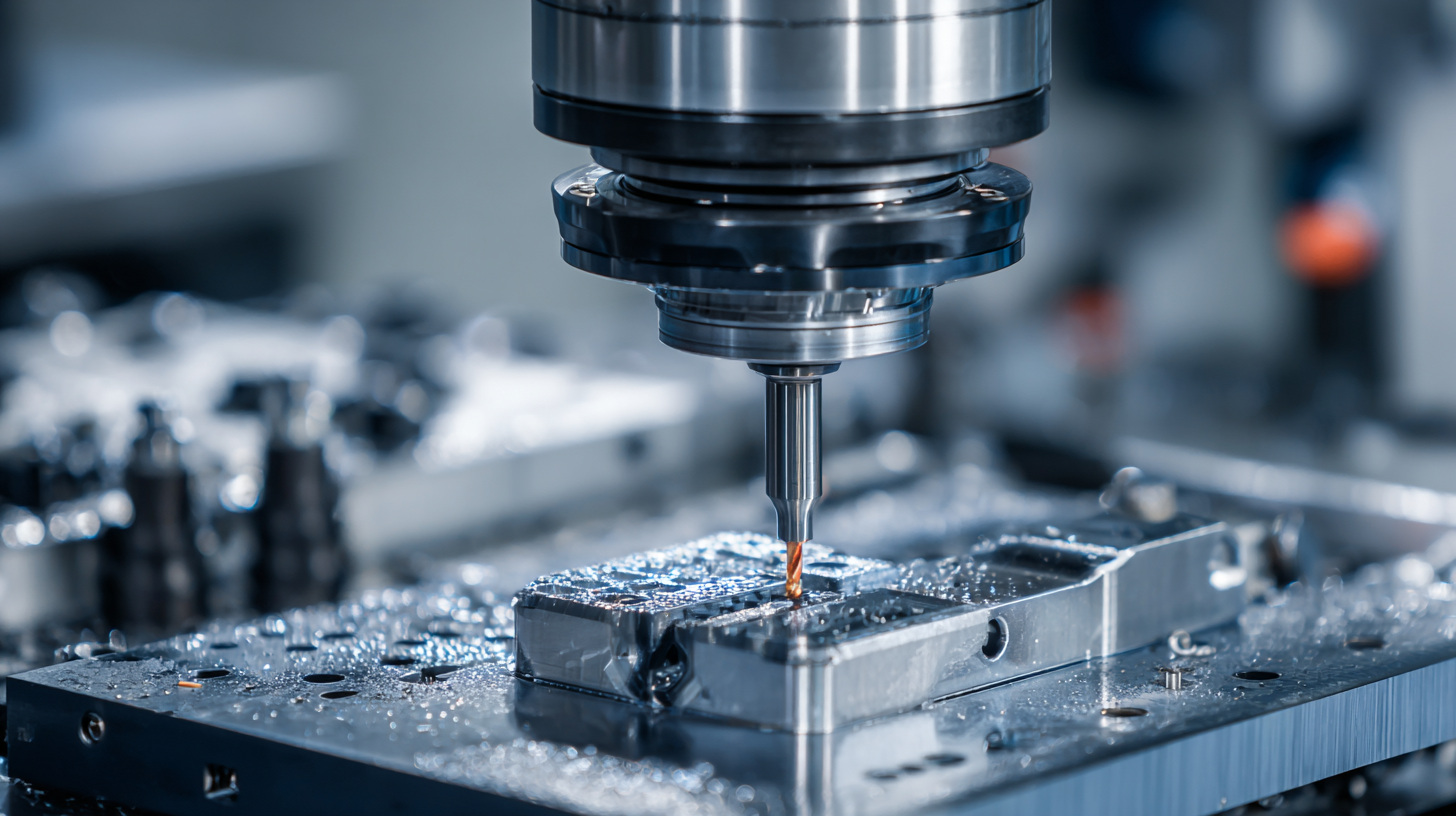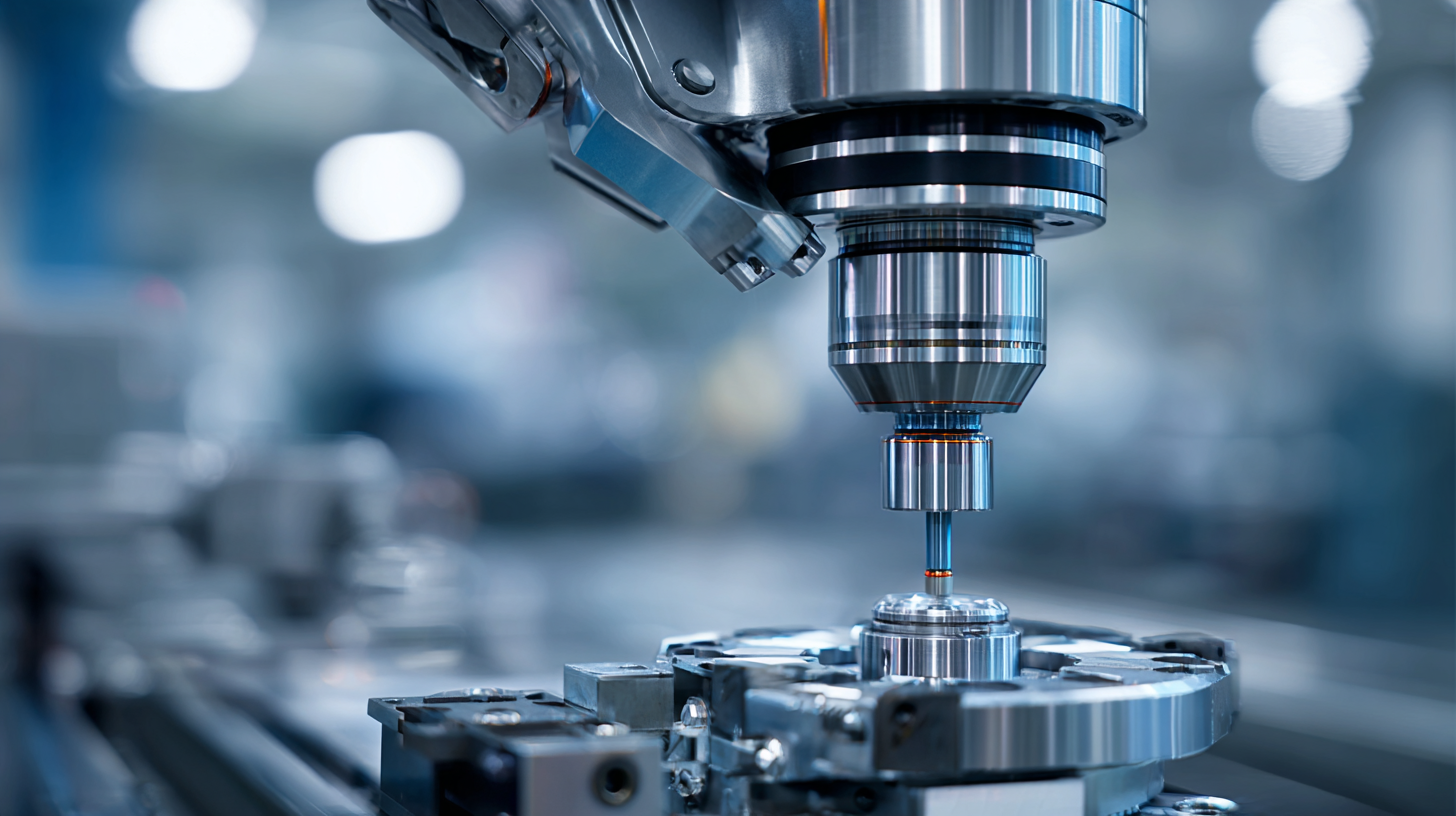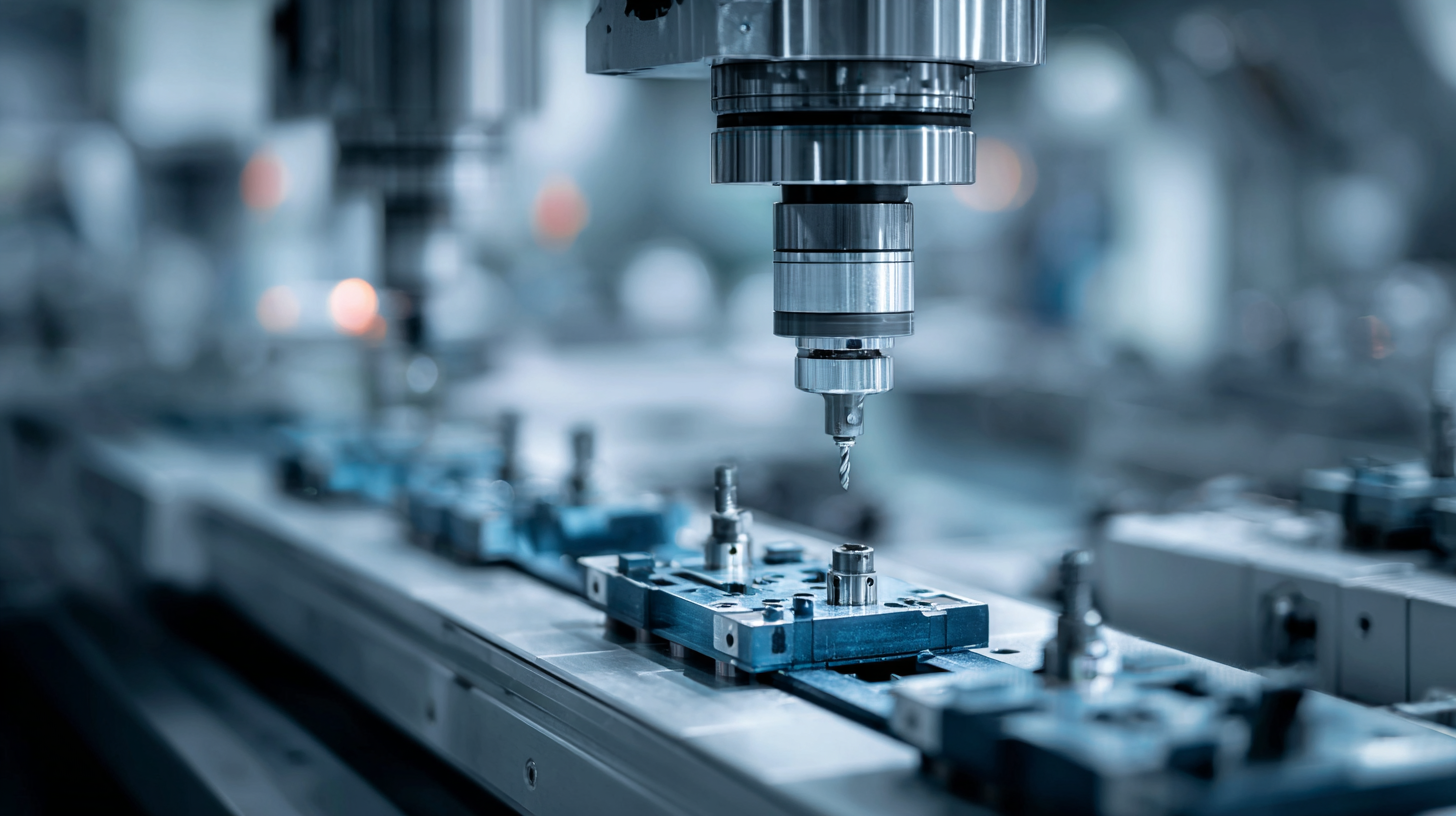In the rapidly evolving landscape of manufacturing and technology, precision engineering has emerged as a pivotal force behind numerous innovations that are transforming industries in 2023. This discipline, characterized by its meticulous approach to designing and fabricating components, plays a critical role in enhancing efficiency, accuracy, and performance across various sectors. From aerospace to medical devices, the advancements in precision engineering are not just fostering creativity but also driving the competitive edge necessary for businesses to thrive in today's market.

As we delve into the top 10 precision engineering innovations of the year, we will explore how these cutting-edge developments are reshaping traditional paradigms. With statistics highlighting their impact, we will uncover the ways in which precision engineering solutions are addressing complex challenges, optimizing production processes, and ultimately, enhancing product quality. This exploration aims to provide insights into the transformative power of precision engineering and its far-reaching implications for industries striving to adapt and excel in an increasingly sophisticated world.
The precision engineering landscape in 2023 is being reshaped by innovative technologies that are revolutionizing various industries, particularly through advanced manufacturing techniques like additive manufacturing. For instance, the global market for aerospace additive manufacturing is projected to grow from approximately $1.2 billion in 2023 to around $3.8 billion by 2030, underscoring the profound impact these technologies are having on efficiency and customization in the aerospace sector. Additive manufacturing allows for the creation of lightweight, complex components, which are crucial for optimizing aircraft performance and reducing costs.
In addition to aerospace, the field of healthcare is experiencing significant transformations due to the advancements in 3D printing technologies. These innovations enable the production of highly customized orthopedic implants tailored to individual patient needs, improving surgical outcomes and recovery times. Current applications in orthopedic surgery showcase how these technologies contribute to personalized medicine, while market analysts project continuous growth in this sector as more hospitals adopt these cutting-edge solutions. The integration of artificial intelligence with additive manufacturing further enhances production processes, streamlining workflows and boosting productivity across diverse industries.

The integration of AI and automation in precision engineering is revolutionizing various industries by enhancing precision, efficiency, and productivity. These technologies enable engineers to analyze vast amounts of data in real time, making it easier to identify potential issues before they become significant problems. With machine learning algorithms, companies can optimize their processes by predicting equipment failure and scheduling maintenance proactively, thereby minimizing downtime.
Tips for implementing AI and automation in precision engineering include starting with pilot projects to evaluate effectiveness. It's crucial to ensure that your team is adequately trained to use these new technologies and understand their implications. Regularly updating your AI models with new data will help maintain accuracy and relevance.
Furthermore, collaboration between AI systems and human operators can enhance decision-making, leveraging the strengths of both. As automation takes over more repetitive tasks, engineers can focus on complex problem-solving and innovation, significantly contributing to a company's competitive edge. Investing in robust cybersecurity measures to protect sensitive data is vital as the reliance on digital systems increases.

Advancements in materials science are at the forefront of transforming precision engineering in 2023. The development of new alloys, composites, and nanomaterials has enabled manufacturers to create components that are not only lighter but also stronger and more durable. For instance, the introduction of high-performance polymers and advanced ceramic materials has significantly enhanced the wear and corrosion resistance of engineered parts, making them suitable for demanding applications in aerospace, automotive, and medical fields.
Tips: When selecting materials for precision engineering projects, consider the specific requirements of your application, including temperature tolerance, strength-to-weight ratio, and environmental resistance. Collaborating with material scientists can also provide insights into the most suitable materials for your needs.
Emerging techniques such as 3D printing and additive manufacturing are revolutionizing the way precision components are produced. These technologies allow for intricate designs that were previously impossible, thus increasing efficiency and reducing waste. The integration of smart materials, which can respond to environmental changes, is another exciting frontier. Such innovations not only optimize performance but also pave the way for future developments in automation and robotics within various industries.
Tips: Stay informed about the latest materials research and trends in additive manufacturing to keep your engineering processes updated and competitive. Regular training for your team on these innovations can help foster a culture of continuous improvement and adaptability in your projects.
| Innovation | Industry Impacted | Statistical Insight | Advancement Description |
|---|---|---|---|
| Additive Manufacturing (3D Printing) | Manufacturing | 30% reduction in lead time | Enables complex part geometries for rapid prototyping. |
| Advanced Robotics | Automotive | 40% increase in production efficiency | Improves accuracy and reduces human error in assembly lines. |
| Smart Sensors | Aerospace | 25% decrease in maintenance costs | Real-time data collection for predictive maintenance. |
| Machine Learning Algorithms | Manufacturing | 15% yield improvement | Optimizes production processes by analyzing production data. |
| Carbon Nanotube Materials | Electronics | Enhancements in conductivity by 200% | Develops lighter and more efficient electronic devices. |
| Internet of Things (IoT) | Energy | 35% efficiency gain in energy management | Enables real-time energy usage monitoring and optimization. |
| Biomaterials | Healthcare | 50% increase in patient recovery speed | Advances in materials that promote healing and tissue regeneration. |
| Precision Machining | Aerospace | Precision improvement by 10 microns | Enhances quality and performance of critical components. |
| Digital Twin Technology | Manufacturing | 20% reduction in downtime | Simulates processes for improved efficiency and predictability. |
| Laser Cutting Technology | Construction | 15% increase in cutting speed | Provides precise cuts, minimizing waste and maximizing efficiency. |
The integration of the Internet of Things (IoT) into precision engineering has been a game changer in enhancing measurement accuracy and quality control across various industries. According to a report from MarketsandMarkets, the global market for IoT in manufacturing is expected to reach $263.4 billion by 2026, growing at a CAGR of 26.4%. This unprecedented growth is largely driven by the demand for real-time data analytics and predictive maintenance capabilities that IoT technology provides, allowing businesses to make informed decisions and reduce operational inefficiencies.
IoT devices, equipped with advanced sensors, enable continuous monitoring of machinery and production processes, thereby ensuring that precision measurements are upheld at all times. A study by PwC indicates that 79% of manufacturers have acknowledged significant improvements in product quality due to IoT implementation, which facilitates better tracking of production metrics and reduces the likelihood of defects. Additionally, as highlighted in a report by Deloitte, enhancing quality control through IoT not only minimizes waste but also shortens the time-to-market for new products, ensuring that industries remain competitive in a fast-evolving landscape.
This chart illustrates the impact score of the top 10 precision engineering innovations in 2023. The innovations range from IoT sensors to advanced measurement systems, showcasing how technology is reshaping industries and enhancing quality control.
As we look beyond 2023, the landscape of precision engineering is poised for transformative advancements driven by automation and digital technologies. One of the most promising trends is the integration of artificial intelligence and machine learning into precision engineering processes. These technologies will enable more predictive maintenance and adaptive manufacturing systems that can learn from their environments, leading to enhanced efficiency and reduced downtime. As manufacturers increasingly adopt smart technologies, we can expect systems that not only execute tasks with high accuracy but also optimize their own performance in real-time.
Another key trend is the focus on sustainability and eco-friendly practices. Precision engineering innovations are likely to prioritize the development of materials and processes that minimize waste and energy consumption. Advanced manufacturing techniques such as 3D printing are being refined to create lighter, stronger components that meet stringent environmental standards. This shift towards green engineering solutions will not only benefit industries but also contribute to global sustainability goals, pushing the boundaries of what is possible in precision engineering while also addressing pressing environmental concerns.
We’re here to help and answer your questions.